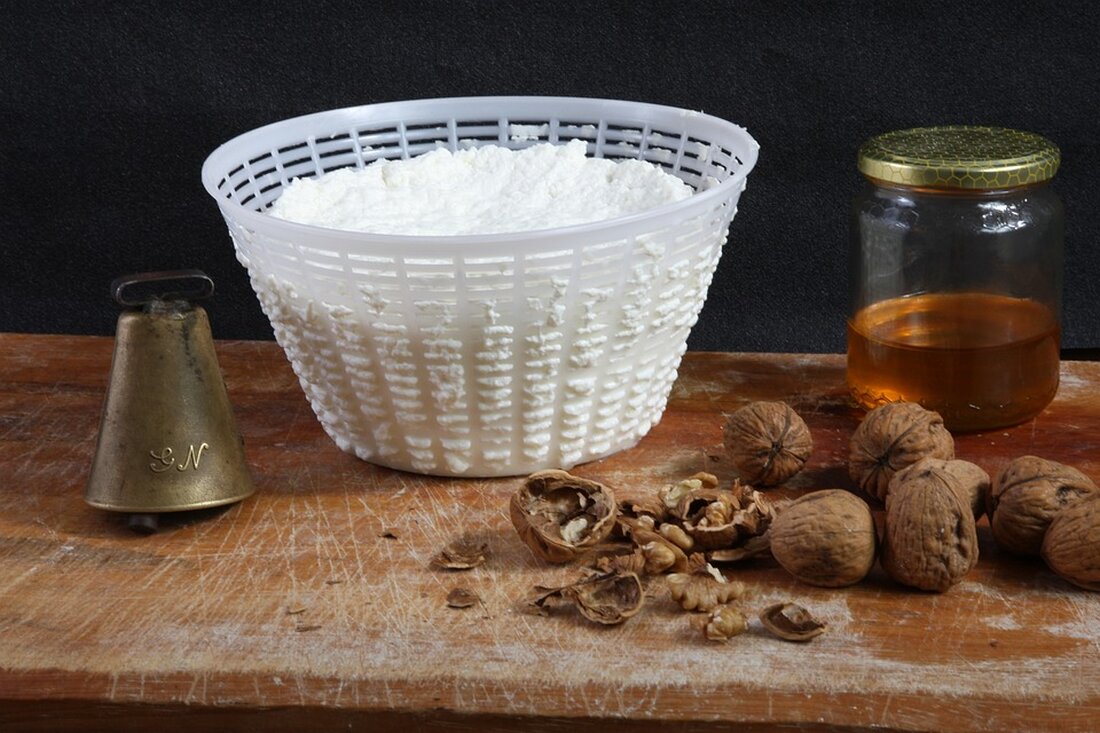Everything You Need to Know About Ricotta: A Comprehensive Introduction
Everything You Need to Know About Ricotta: A Comprehensive Introduction Ricotta is a very popular type of Italian fresh cheese that is used in many cuisines worldwide due to its creamy texture and mild flavor. In this article, we will provide you with a comprehensive introduction to ricotta, giving you detailed information about its ingredients, production methods, uses, nutritional values and storage tips. What is Ricotta? Ricotta, which translates to "cooked again," is a fresh cheese made from cow's, sheep's or goat's milk, made from the whey components left over from the production of cheese. The whey is heated again so that the proteins coagulate and then...

Everything You Need to Know About Ricotta: A Comprehensive Introduction
Everything You Need to Know About Ricotta: A Comprehensive Introduction
Ricotta is a very popular type of Italian fresh cheese that is used in many cuisines worldwide due to its creamy texture and mild flavor. In this article, we will provide you with a comprehensive introduction to ricotta, giving you detailed information about its ingredients, production methods, uses, nutritional values and storage tips.
What is Ricotta?
Ricotta, which translates to "cooked again," is a fresh cheese made from cow's, sheep's or goat's milk, made from the whey components left over from the production of cheese. The whey is heated again so that the proteins coagulate and can then be skimmed off. This process gives the ricotta its characteristic creamy consistency.
Ingredients of Ricotta
Ricotta mainly contains whey proteins, fats, minerals and vitamins. The main component of ricotta is the milk protein casein, which is contained in whey. The fat content of ricotta varies depending on the type of milk used. It can be between 5 and 15%.
Additionally, ricotta contains important minerals such as calcium, phosphorus and zinc. Vitamins A, D and E are also contained in small amounts.
Production of ricotta
The production of ricotta begins with the production of cheese such as mozzarella or parmesan. When making cheese, the milk is first thickened and then formed into solid cheese wheels. The remaining liquid portion, the whey, is then used for ricotta production.
The whey is heated in a pot or kettle until it almost reaches boiling point. Heating the whey causes the proteins to coagulate and form small flakes of cheese. The curdled whey is then carefully skimmed off and placed in perforated containers or cheesecloth to drain the liquid. The remaining cheese part is then called ricotta.
Use of ricotta
Ricotta is extremely versatile and can be used in a variety of dishes. Although ricotta is traditionally often used in Italian cuisine for filled pastas such as ravioli or cannelloni, it can also be found in desserts such as tiramisu or in savory dishes such as lasagne.
The creamy and mild properties of ricotta make it a popular ingredient in baked goods such as cakes, cookies or pancakes. It can also be used as a spread on bread or as a dip for fresh vegetables. Ricotta can also serve as a substitute for other cheeses in various recipes due to its versatile texture and moderate flavor.
Ricotta nutritional information
Ricotta is a nutrient-rich source and contains many important ingredients. A serving of ricotta (approx. 100g) contains approximately 174 calories, 11g fat, 13g protein and 5g carbohydrates. Ricotta is also rich in calcium and also contains other important minerals such as phosphorus, magnesium and potassium.
However, it should be noted that the fat content of ricotta can vary greatly depending on the manufacturer and variant. It is therefore advisable to check the nutritional information on the packaging of the ricotta product.
Storing Ricotta
To preserve the freshness and quality of ricotta, it should be stored properly. It is generally recommended to keep the ricotta refrigerated at temperatures between 2 and 5 degrees Celsius. Typically, the ricotta will last for about a week in its original container or in an airtight container in the refrigerator.
It is important to note that ricotta is a fresh product and therefore should be consumed quickly after opening to avoid spoilage.
Frequently asked questions
Is ricotta lactose free?
No, ricotta contains lactose because it is made from milk. People with lactose intolerance should be careful and decide individually whether they can tolerate ricotta or not.
Can you freeze ricotta?
Yes, you can freeze ricotta. If you want to store ricotta for longer, you can freeze it in a suitable freezer container or bag. When thawed, the consistency of the ricotta may change slightly, but it can still be used in many dishes.
Can you make ricotta yourself?
Yes, you can make ricotta at home. There are many recipes online that detail the making process and walk you through each step.
Is ricotta vegetarian/vegan?
Ricotta is made from animal milk and is therefore not vegan. However, vegetarians can use ricotta as it does not contain animal meat.
Conclusion
Ricotta is a versatile and delicious fresh cheese that is popular in many cuisines around the world. Its creamy texture and mild flavor make it a great ingredient for many dishes. Whether in pasta, desserts or baked goods – ricotta is a real all-rounder. With its nutrient-dense ingredients and easy preparation, ricotta is definitely worth trying. Try it in your favorite recipes and discover the delicious possibilities that ricotta offers.

 Suche
Suche
 Mein Konto
Mein Konto
